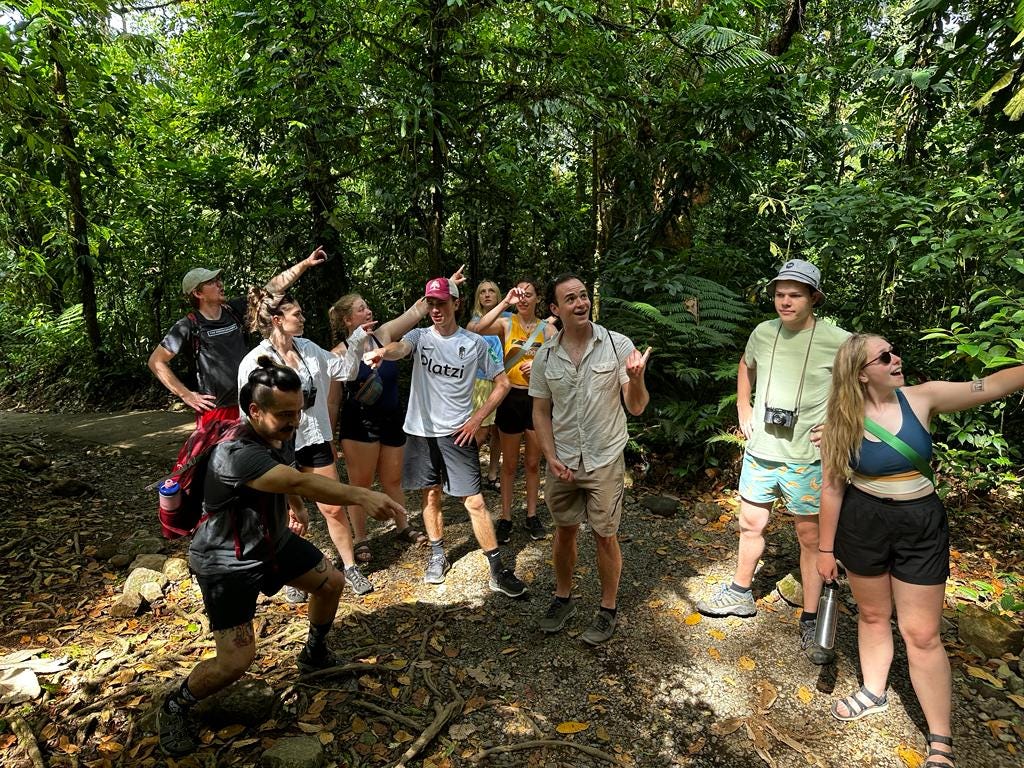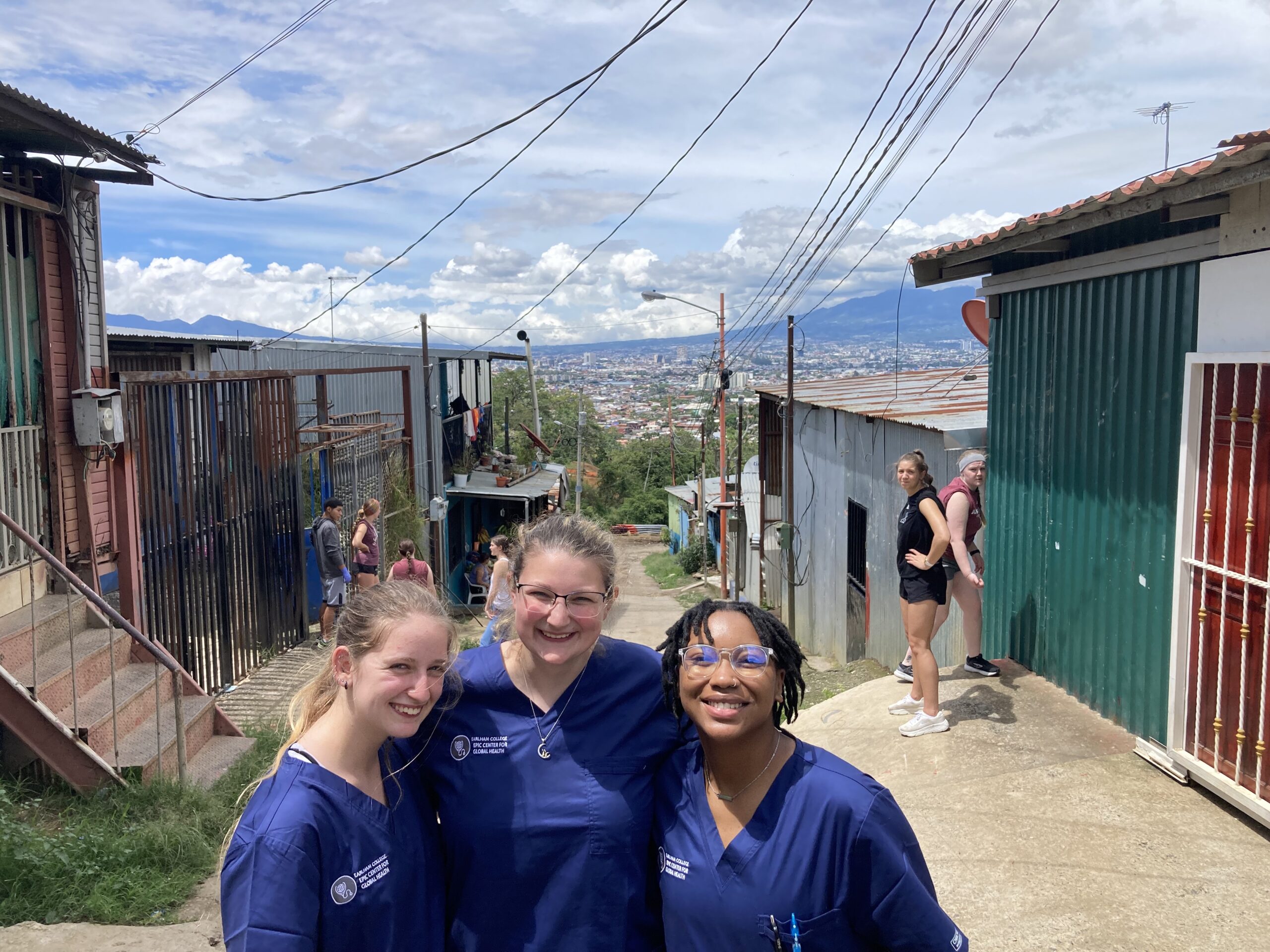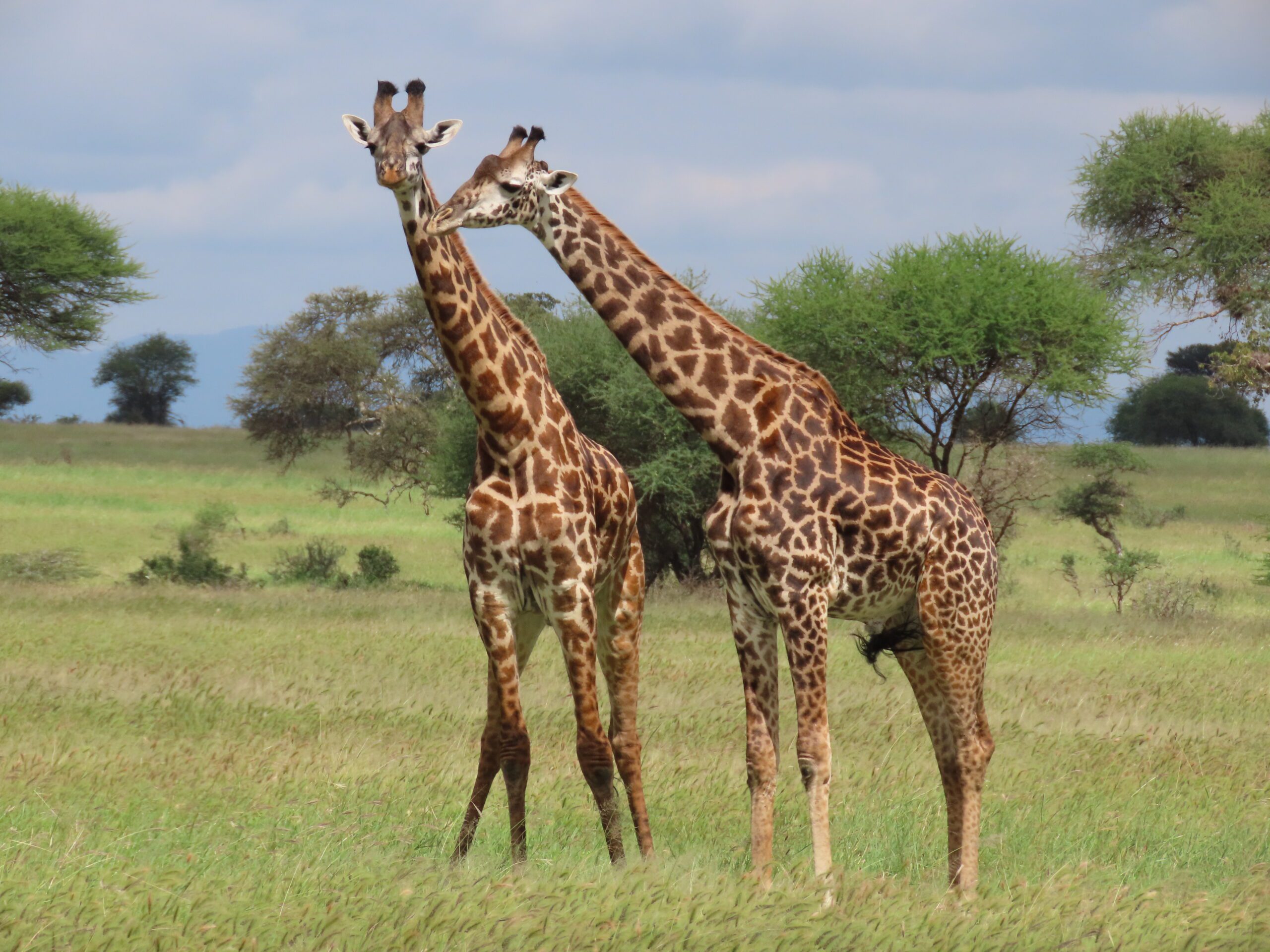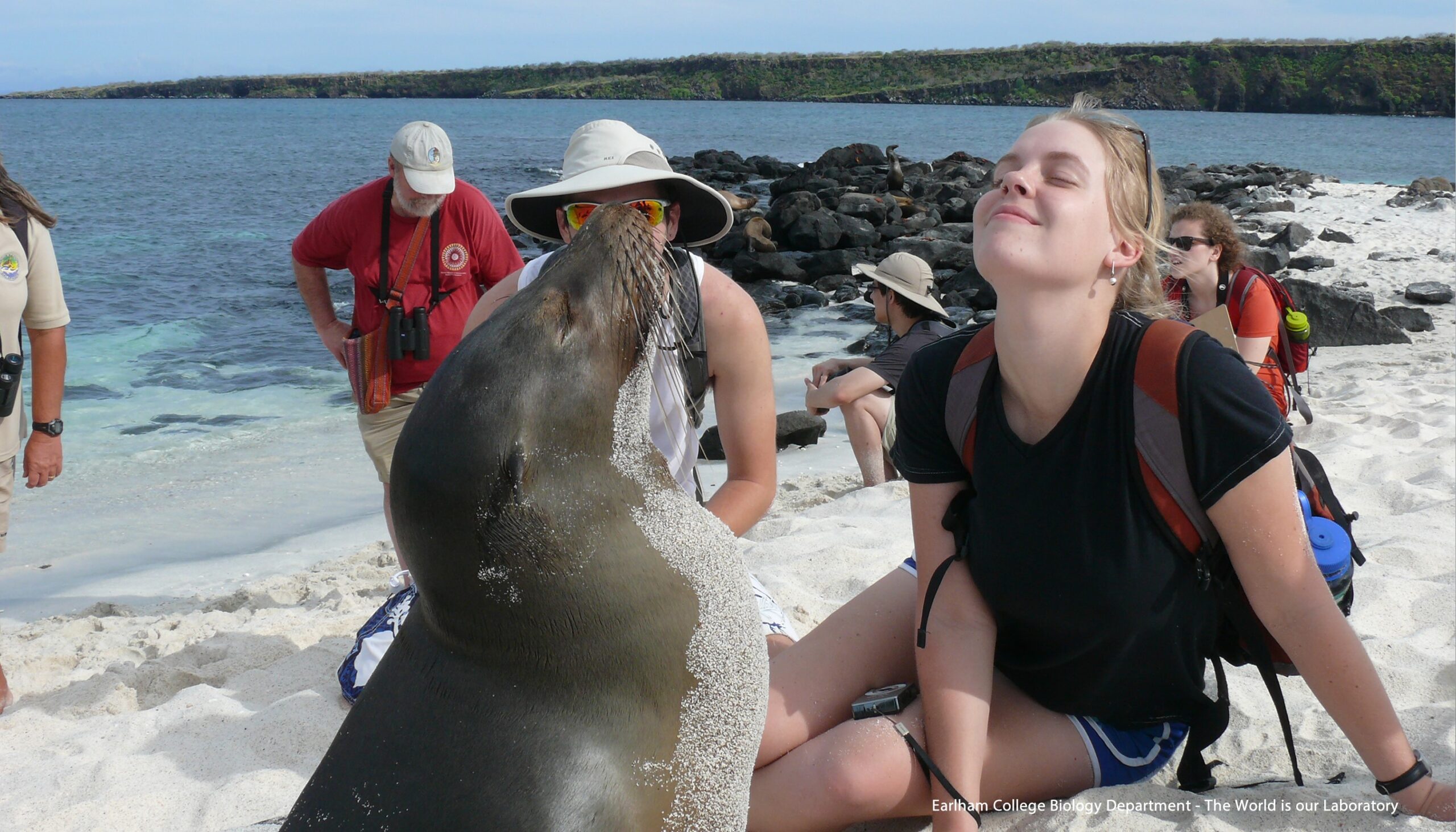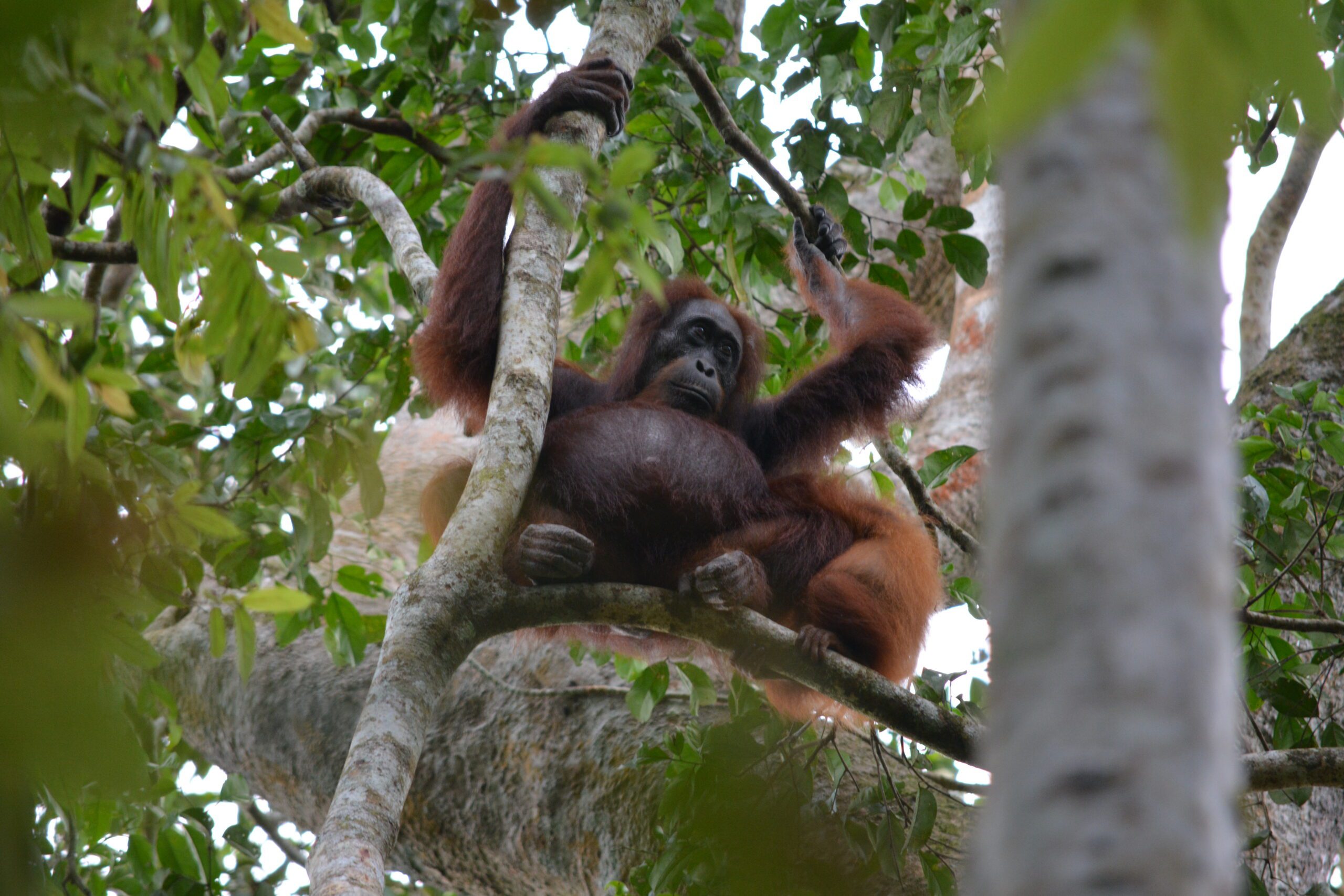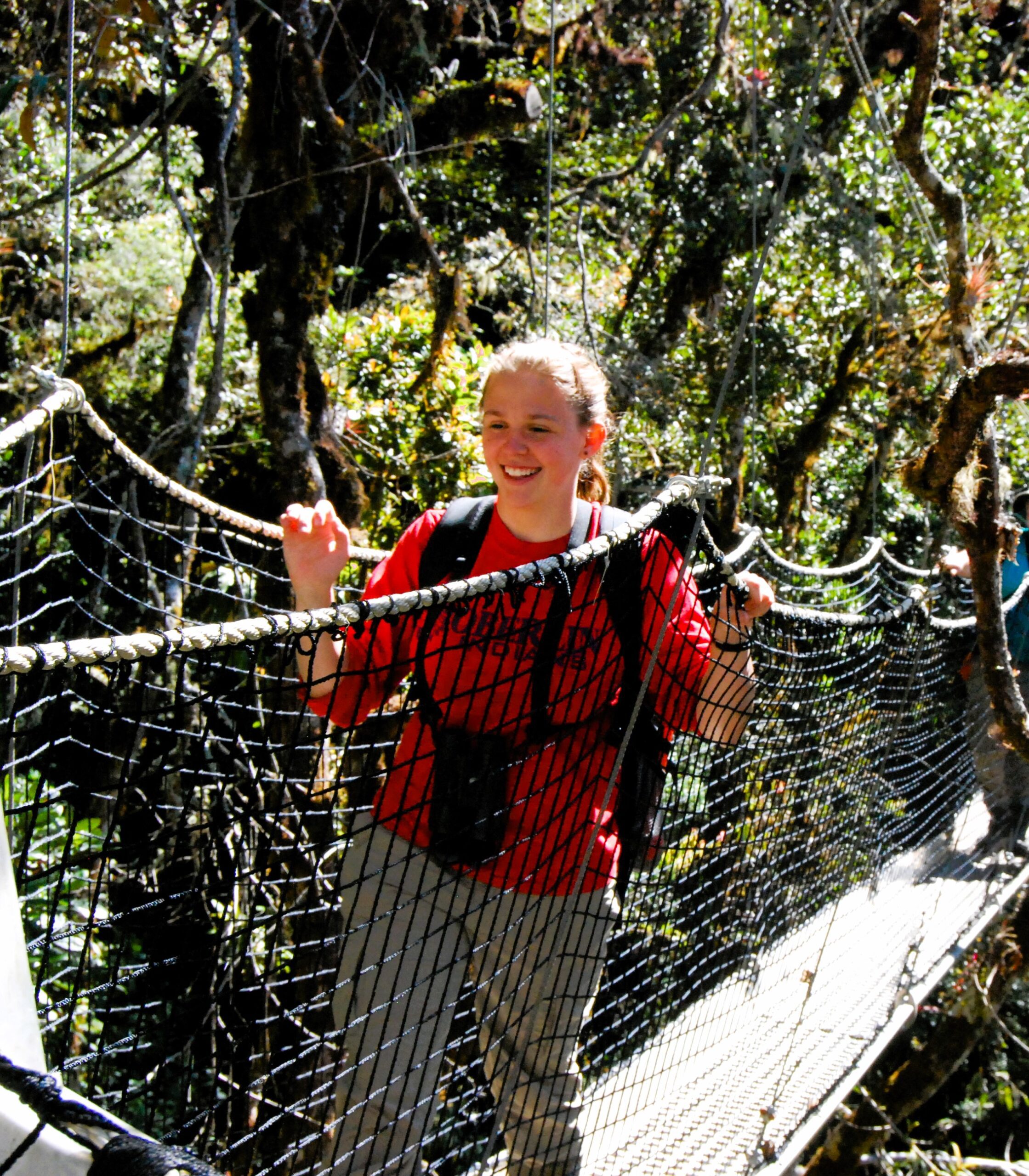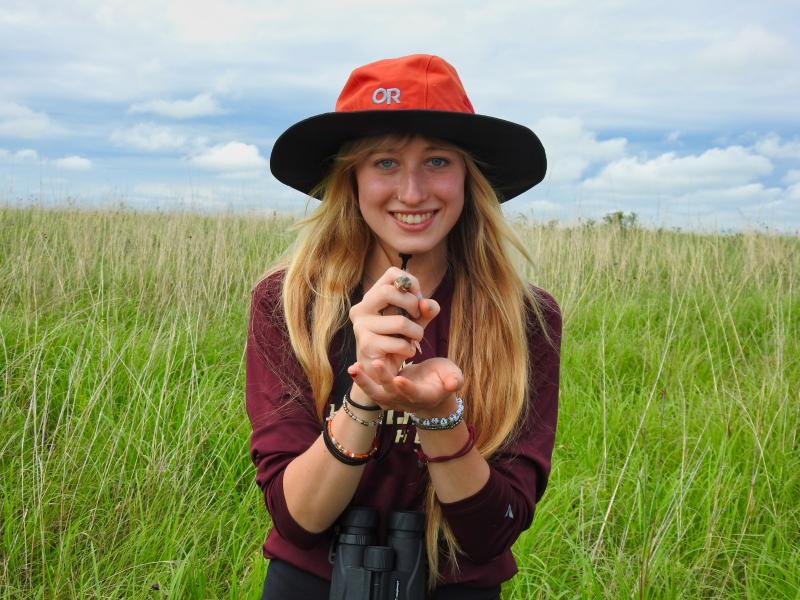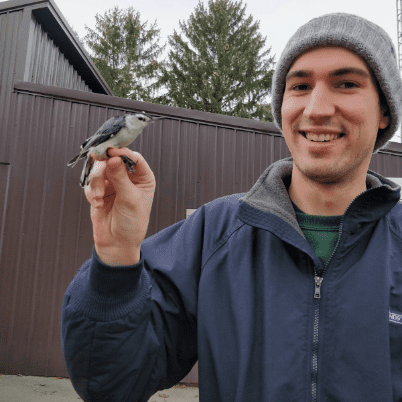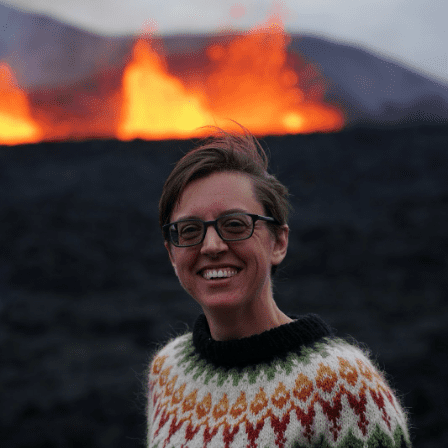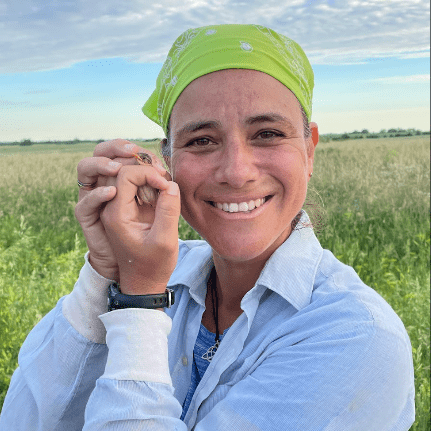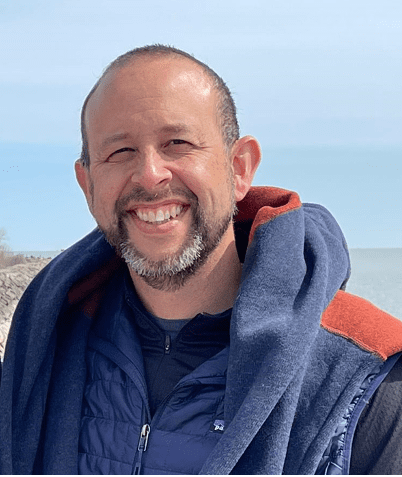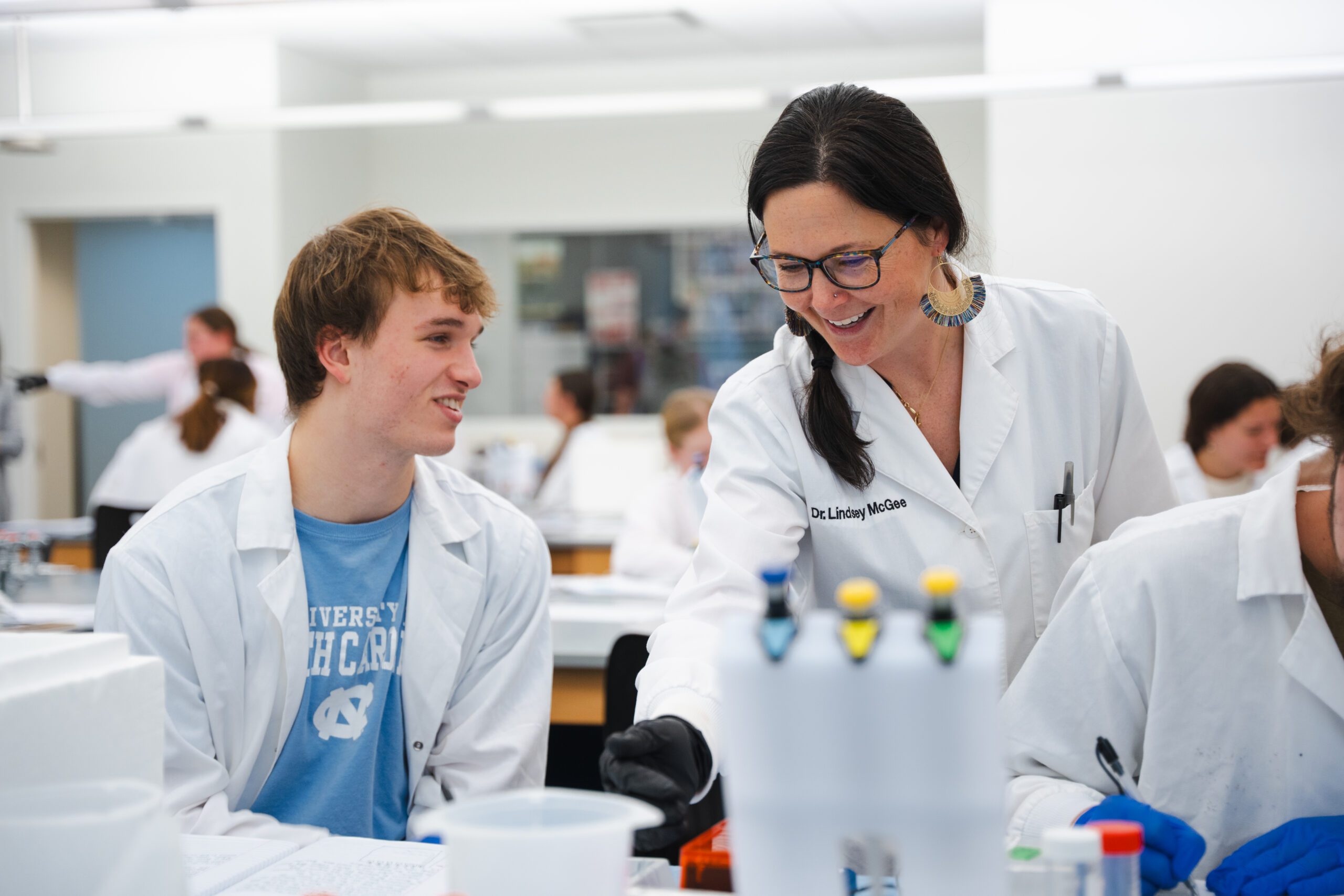
Biology
Earlham’s biology program covers all sides of the field—from cells, ecosystems, neuroscience, environmental science, health and beyond. From day one, our students are challenged and supported through engaging classes, mentored by experienced faculty and encouraged to study biology around the world.
Our faculty are well versed in disciplines like environmental science, neuroscience, biochemistry, health science, ecology, evolution and cell and molecular biology. Whether learning in the classroom, or on a once-in-a-lifetime excursion, our students have full access to faculty who are working and researching in their fields.
Alumni of our biology program have found their callings as physicians, zookeepers, museum specialists, and in many other fields. With our faculty’s support, you will work towards your own biology career goals, as you discover and become the best version of yourself and make a difference in the world.
Biochemistry | Environmental Sustainability | Neuroscience
Exercise Sport & Health Studies | Museum Studies
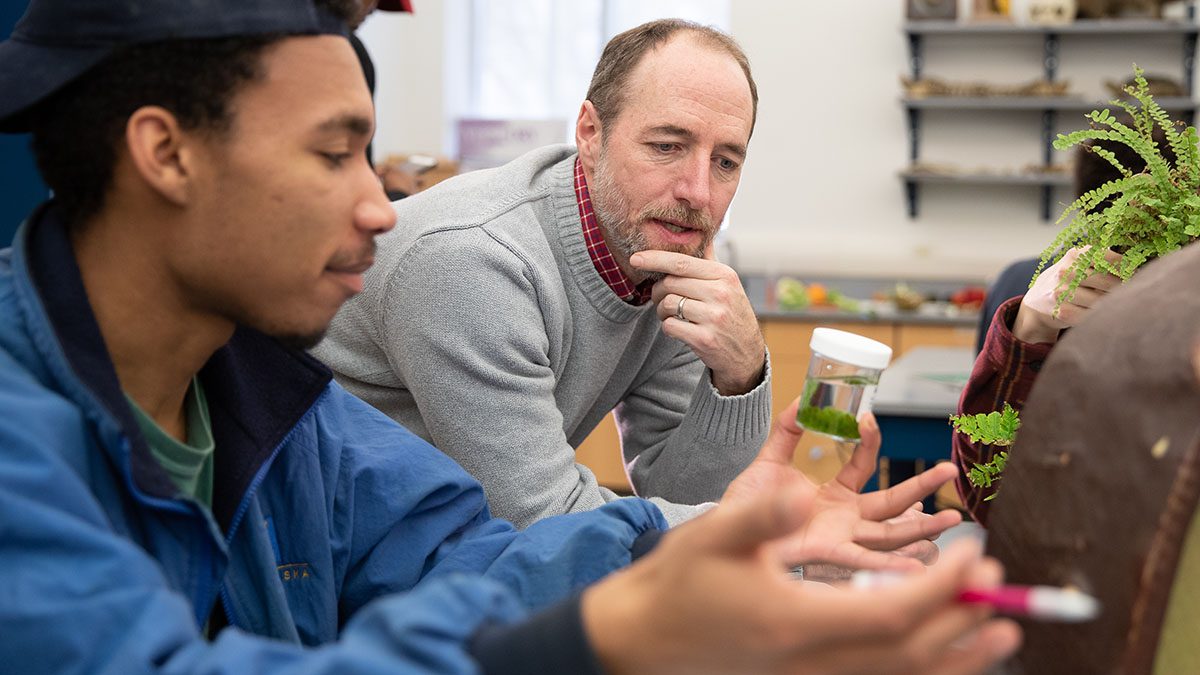
Research, Bio-Programs and Field Expeditions
Our biology students have many different opportunities to learn while they explore. Whether getting outside for a class, or traveling around the United States for natural history expeditions, or even attending a national conference, our students grow their resumes and their life experiences in the field.
Students and faculty often engage in field courses and research around the country and the world. Earlham biology students have recently traveled to Tanzania, Iceland, Borneo, the Amazon, Galapagos and more
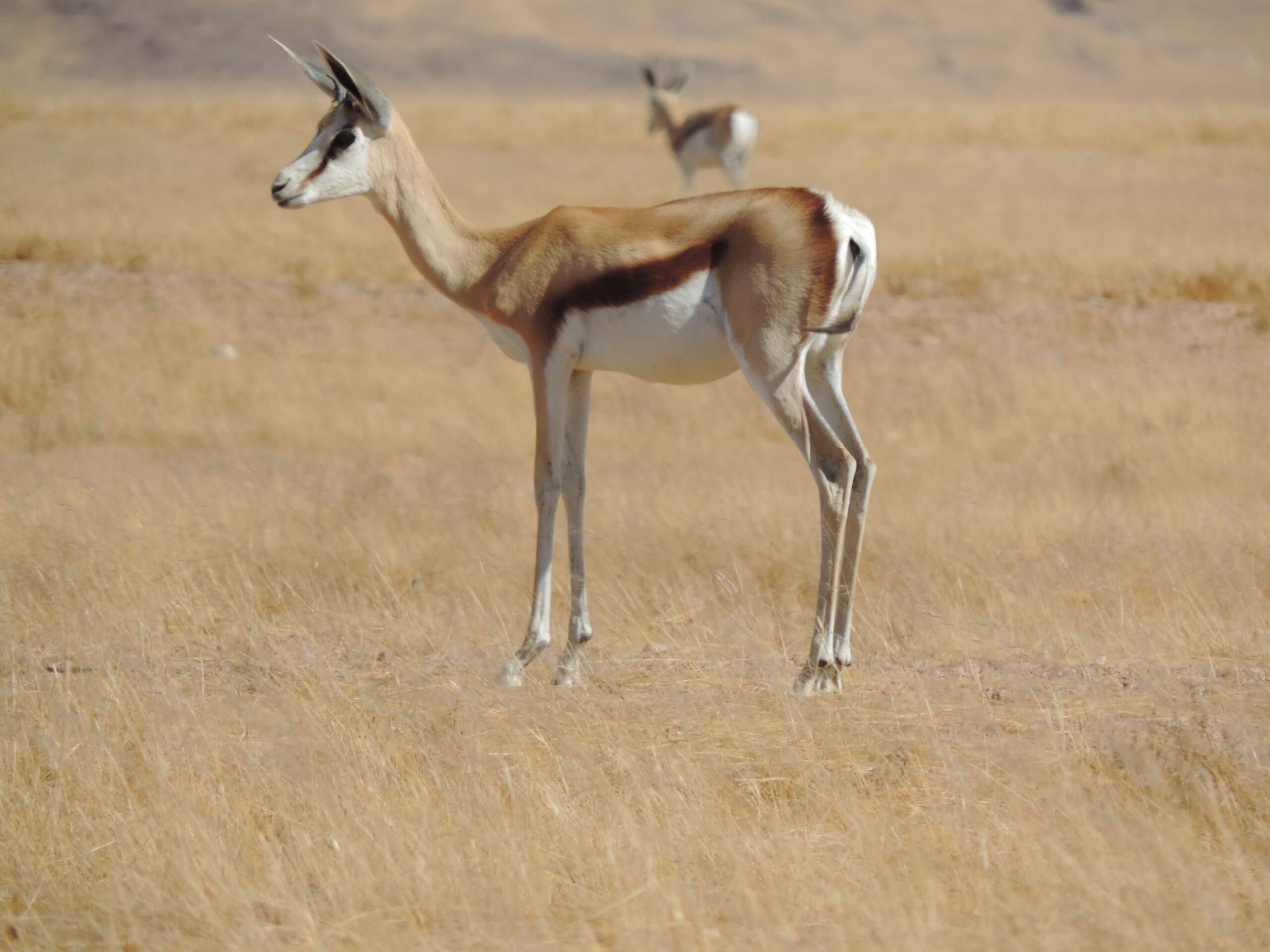
Namibia, Africa
May term off-campus natural history expedition biology course
Ecology, Wildlife Conservation & Cultures
Students will engage in hands-on field experiences where they will learn firsthand about ecology, human wildlife conflicts, evolution and conservation of Namibia’s wildlife. They will conduct research projects and interact with a variety of people involved in conservation issues.
Biology Professor Wendy Tori will be leading this program in 2024.
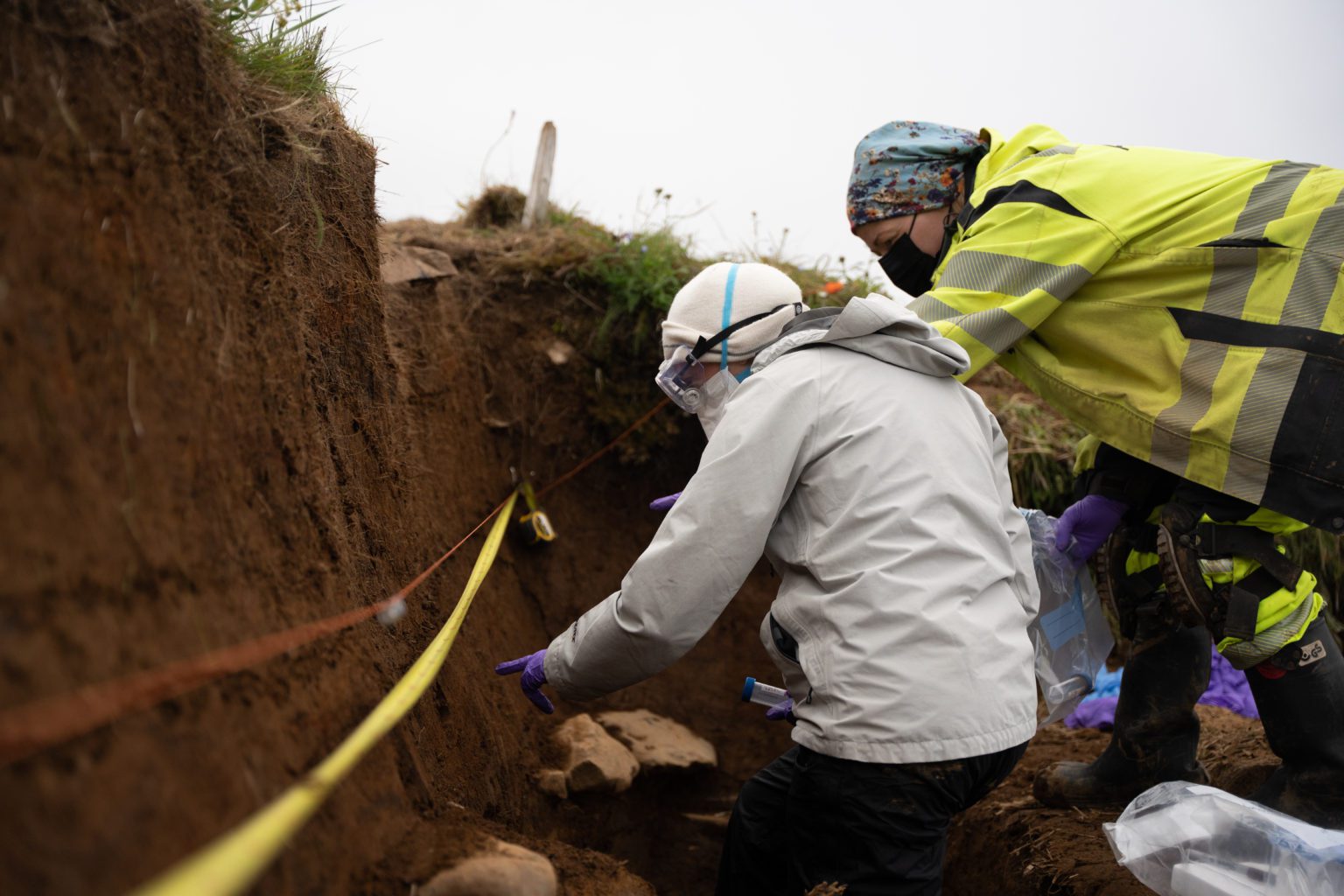
Icelandic Field Studies (ongoing)
A collaborative Epic Advantage Program: BIO-CS-PHY
Environmental DNA, Quadcopter Survey, & Ancient DNA
Icelandic Field Studies (IFS) is a multidisciplinary, science-based, on and off-campus collaborative research experience. It is intended for students who seek to immerse themselves in the planning and execution of a science expedition designed to explore the geography, geology, biology, environment, archaeology and culture of one of the most unique places on our planet.
Biology professor Emmett Smith will be leading the next program in 2024.
Students and faculty often engage in field courses and research around the country and the world. Earlham biology students have recently traveled to Tanzania, Iceland, Borneo, the Amazon, Galapagos and more.
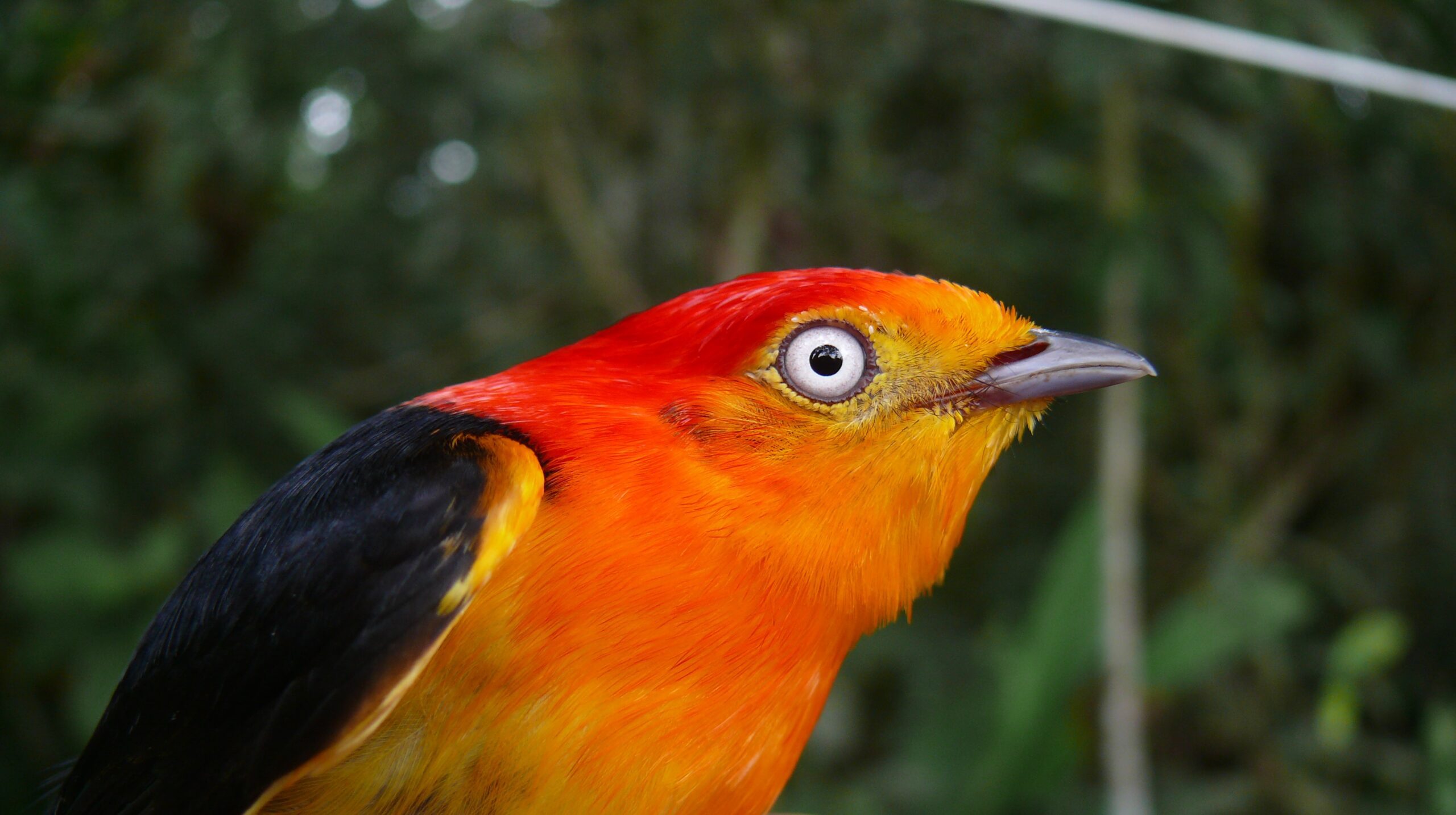
Amazon Rainforest (2024)
Biology & U. Copenhagen research across borders
eDNA, Birds, Ecology and Conservation
Earlham College Professor and Endowed Chair for Biology in Ornithology Wendy Tori and Kasun Bodawatta, an Earlham alum and postdoctoral researcher from the University of Cophenhagen Globe Institute, will be embarking on an expedition this summer into the Amazon rainforest of Peru to investigate new field-based techniques in the study of birds in Peru’s altitudinal gradient. The goal is to establish a new research program to involve Earlham students in hands-on avian wildlife and field research in future years.
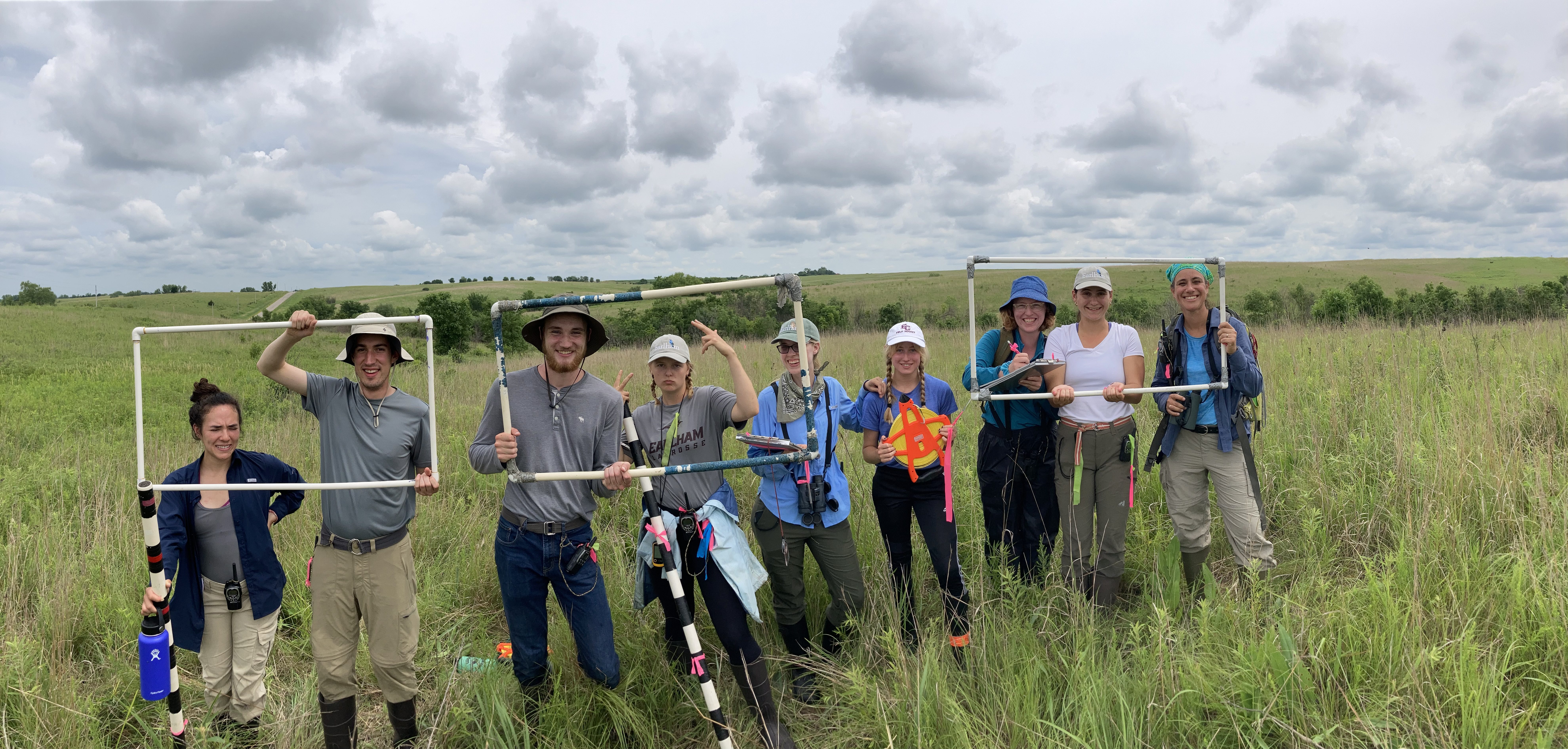
Grassland Bird Research (ongoing)
Collaborative Summer Research
Investigating the Decline of Grassland Birds, Conservation
Wildlife ecologists and professors Jaime Coon and Wendy Tori are investigating ways to restore the tall grass prairie, a now declining ecosystem that once sustained an abundance of grassland birds across the Great Plains and Midwest, including Indiana. Students have actively participated in this project during the last three summers collecting data, analyzing it and presenting their findings at national conferences like the Ecological Society of America (ESA) and American Ornithological Union (AOU).
Publications
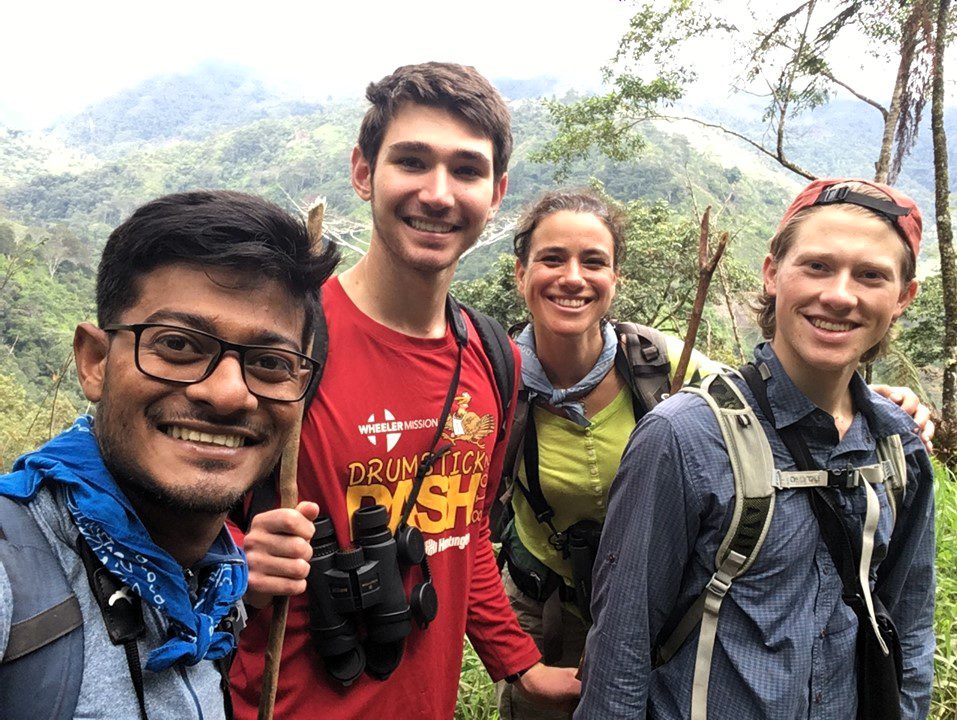
Papua New Guinea
Avian Biology Summer Collaborative Research
Investigating Avian Biology, Parasites, and Poisonous Birds
Wendy Tori, resident ecologist and ornithologist at Earlham College, embarked on a unique adventure to the rainforests of Papua New Guinea with students Sam Pigot ’21 (recent Watson fellow), Ian Shriner ’21 and Earlham alum Kasun Bodawatta in a once-in-a-lifetime collaborative research experience. After the program, Sam was selected as a Watson Fellow and Ian applied to graduate programs to pursue a doctorate degree. They have published their work in Journal of Avian Biology.
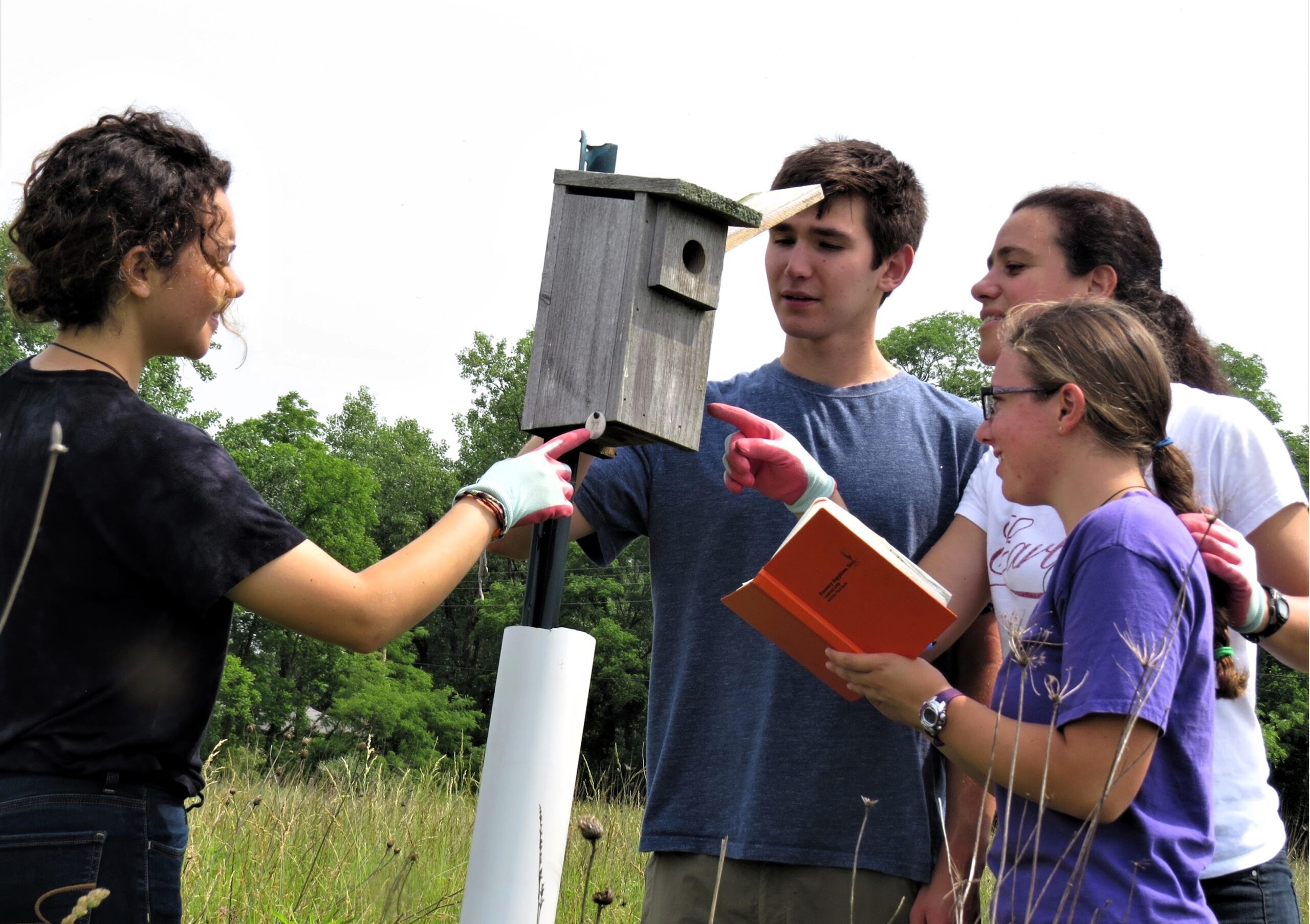
Tree Swallow Research (Indiana, USA)
Collaborative Summer Research
Reproductive Patterns, Nesting & Barcoding in Tree Swallows
During summers and fall semesters, Earlham students have joined professor Wendy Tori in the study of tree swallows (Tachycineta bicolor). They have examined everything from nest building, to thermoregulatory costs for nestlings, to using barcoding and genetic techniques to identify feather lining. Students engaged in both hands-on field and lab research–the best of both worlds in science.
Publications
Students and faculty engage in laboratory experiences, doing research, publishing and presenting at regional and national scientific conferences.

Resistant Bacteria & Evolutionary Pathways (2023)
Summer Collaborative Research
Uncovering the Evolutionary Pathways Toward Triple-Resistant Bacterial Populations
Faculty member Lindsey McGee and her research students actively engaged in studying antibiotic resistance and the challenges of treating bacterial infections. Phage therapy, a possible treatment alternative, has become a developing topic in the medical world. Students have presented their research at local and regional conferences.
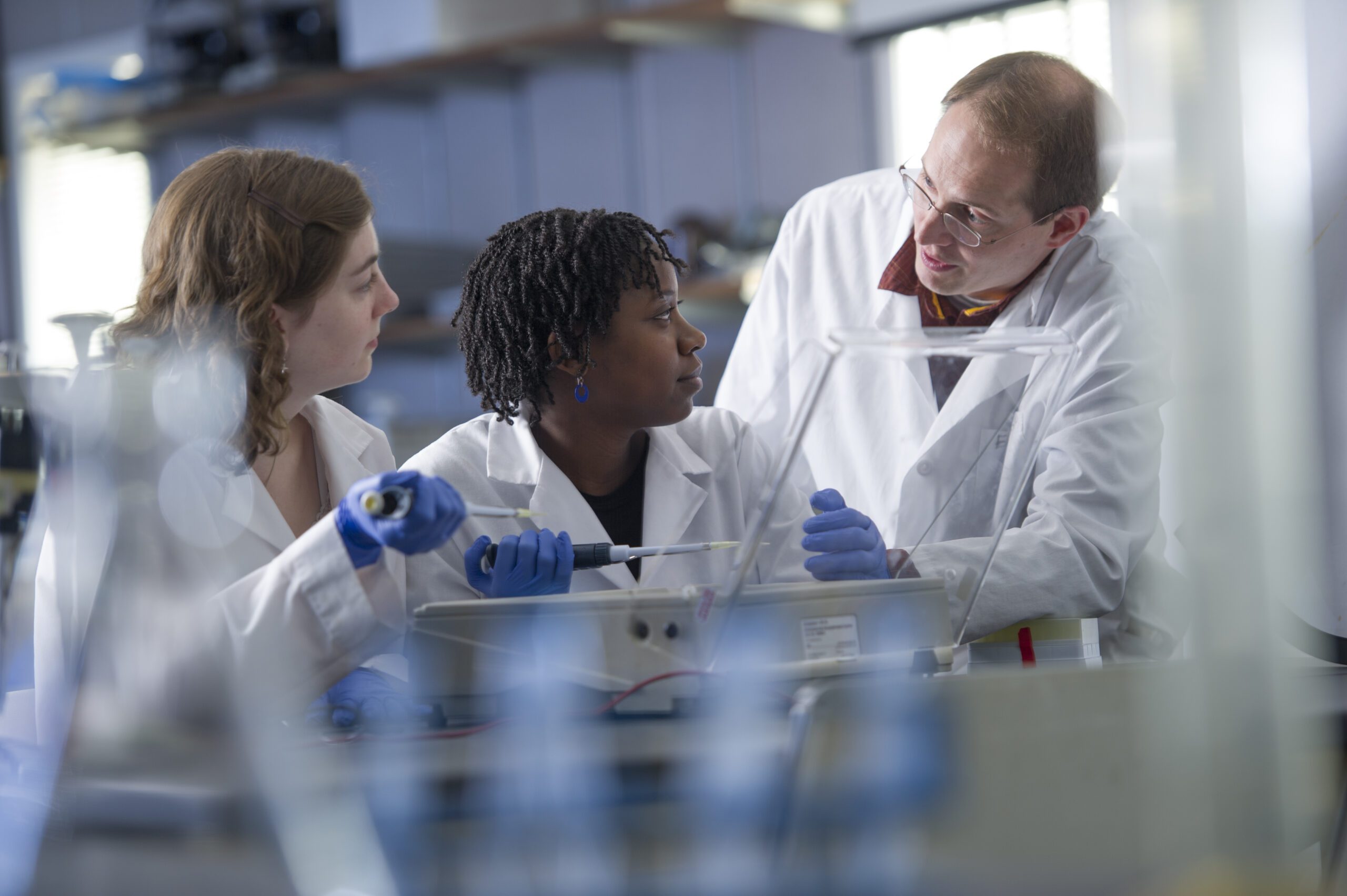
Malaria Genomics
Summer Collaborative Research
Malaria bioinformatics
Malaria is still a scourge to global human health, with approximately one million annual deaths and 300 million people infected. During the past 16 years, more than 35 Earlham College undergraduate students have collaborated with Peter Blair to explore and correct the genomes of malaria parasites. In this research, students became trained in contemporary bioinformatic techniques and traditional molecular biology approaches (PCR, cDNA synthesis and recombinant cloning). A large percentage of these students entered graduate and professional schools in biological and biomedical fields, including medicine.
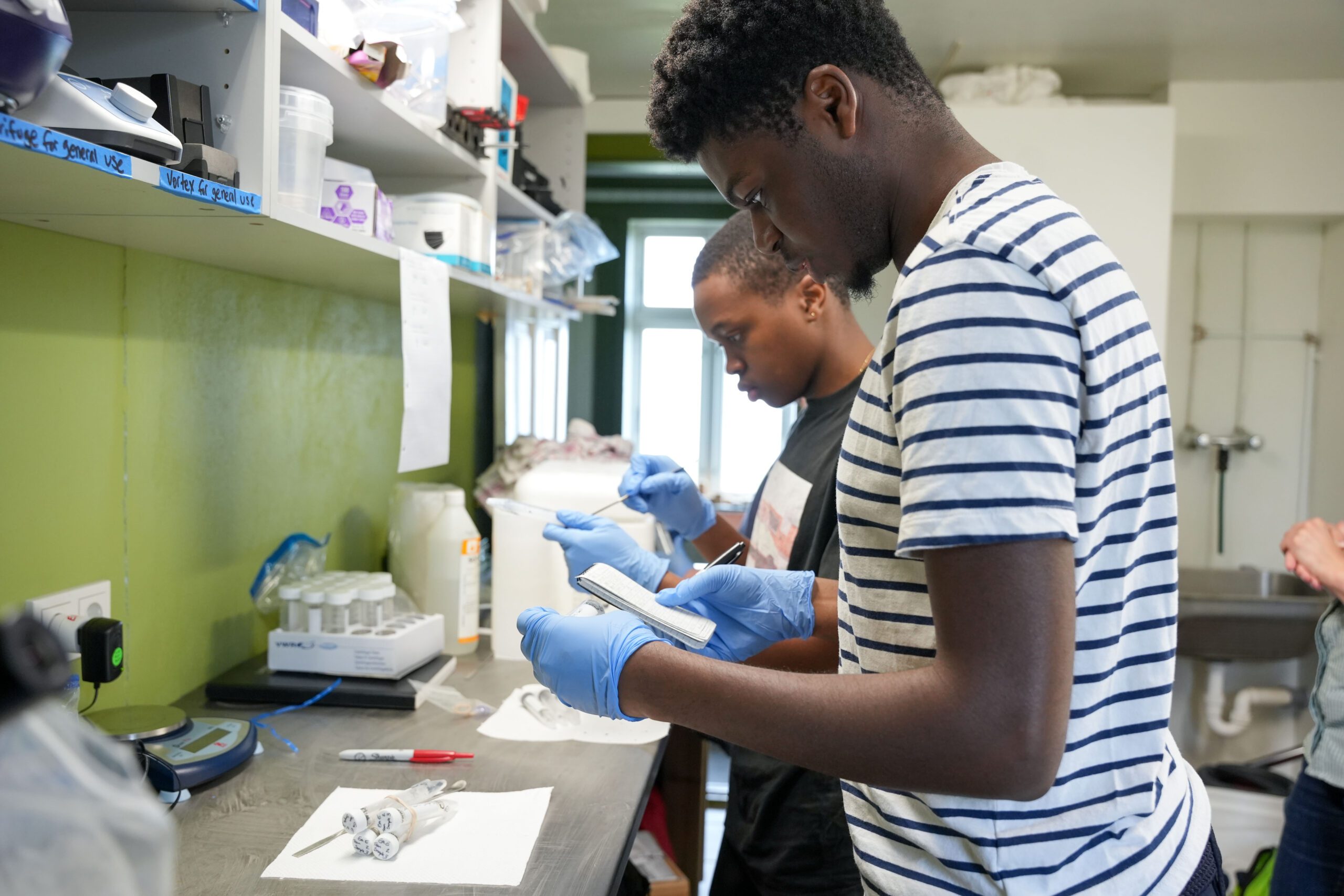
Ancient DNA and eDNA: Iceland
Summer Collaborative Research
Where the evidence takes you in the field and the lab
Students and faculty have been looking at traces of DNA from cranberry and henbane, two plants believed to be transported to Iceland by Norse explorers. This collaborative research project has identified what may be ancient sheep DNA in the soils of a known sheep field and settlement at Skalanes. Further, the samples taken at the archaeological site at Stöð have been used to identify what may be ancient DNA from crops raised by Norse settlers. They established soil-based ancient DNA analysis as a viable strategy for Icelandic archaeology work and opened the door for further research.
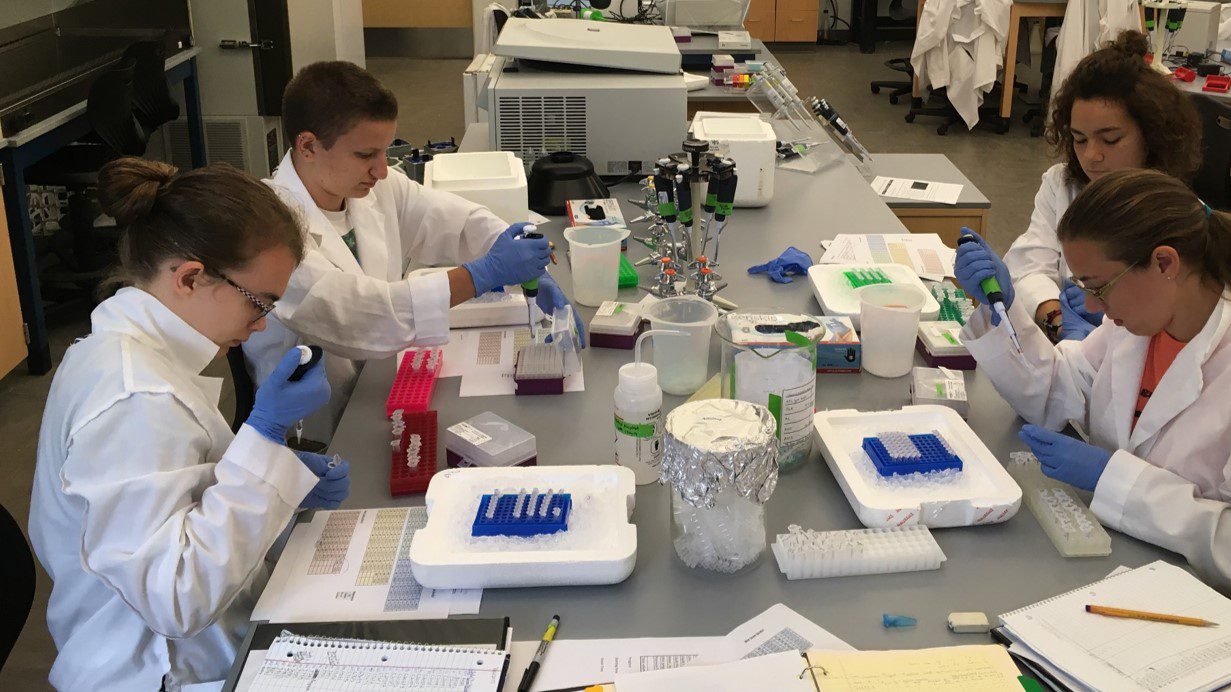
Barcoding of Avian Feathers
Summer Collaborative Research
Identity of Feathers Used in Tree Swallows as Nest Lining
During this summer and fall collaborative research experience, Earlham students looked at nesting structures of tree swallows, particularly the use of feathers to line them. They observed that when it comes to nest construction, these bird species are generalists and very good at it. Students that participated in this research are applying to graduate school, have already completed graduate school, or were selected for a Watson fellowship.
The world is our laboratory, and the laboratory is our world
Hands-on research begins with your first biology course. Throughout your Earlham experience, you’ll do research in the field and lab and also apply what you learn beyond campus through internships, opportunities with our research partners and amazing off-campus experiences across the United States or overseas.
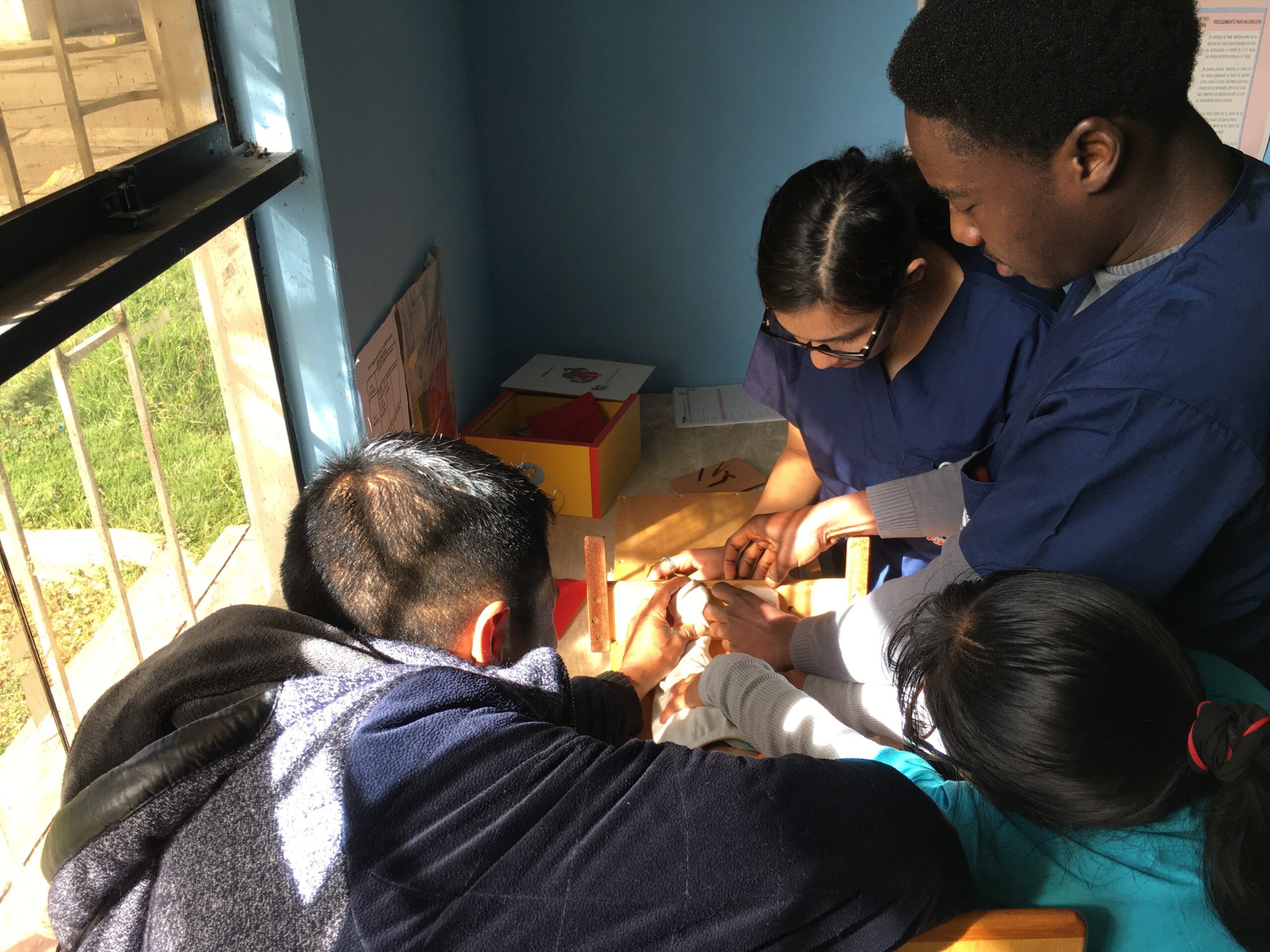
Internship experience
Biology majors have had access to internships at U.S. based hospitals, Department of Natural Resources, field stations, medical and biological research institutes in U.S. universities, zoos, natural history museums, and many other places.
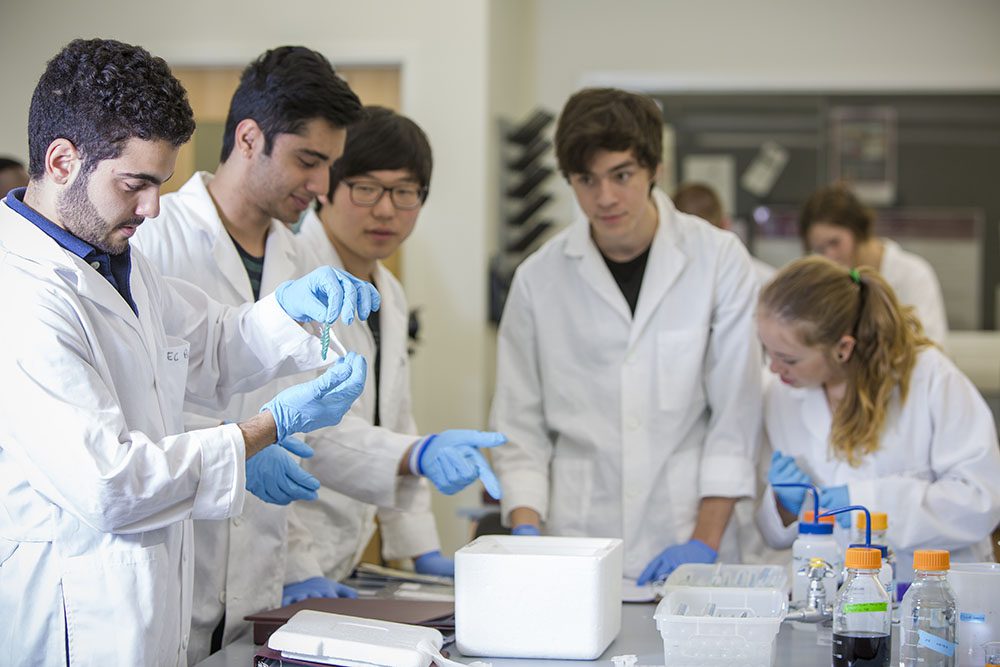
Exceptional facilities
At Earlham, you’ll have access to top-notch facilities for your biology studies, including a fully equipped molecular biology lab, human cadaver lab, the Earlham Nature Reserve System, a greenhouse, herbarium and the Joseph Moore Museum of Natural History.
Opportunities & Outcomes
Top ranked: Earlham ranks in the top 10 in the U.S. for the percentage of our graduates who earn doctorates in the life sciences.
Career Outcomes
of work seekers who majored in the natural sciences between 2018-2022 were employed, pursuing graduate school or volunteering within six months of graduation.
What Biology students and faculty are saying
Frequently asked questions
In the biology major at Earlham, you’ll be part of a community that cares about you and has a rich history of success in placing students into a wide variety of life science graduate and professional programs. Our faculty will get to know you by first name (you’ll do the same with them) and they will use their resources and networks to help you discover and follow your career path.
Biology Majors have had access to internships at: St. Christopher Hospital in Philadelphia, the Indiana Department of Natural Resources, University of Pennsylvania School of Medicine, the Wyoming Dinosaur Center, Schepens Eye Research Institute (affiliate of Harvard Medical School), the Cincinnati Zoo, University of Arizona Natural History Museum Collections, among other places.
Biology Majors are strongly encouraged to plan for an off-campus May Term program, Epic advantage and summer research experiences, or semester abroad program.
Biology Majors have access to amazing off-campus field expeditions (e.g., Namibia, Borneo, Peru), field research opportunities (e.g., Ice-Land, GRG) and laboratory experiences.
Talk to your adviser early in your college career to plan for this. Learn more about upcoming opportunities through the Center of Global and Career Education.
If you’re interested in medicine, biology (field & molecular) research, natural resource management, healthcare, veterinary medicine, wildlife-zoology, conservation biology, environmental science, or education, the biology major may be for you.
Recent graduates have earned prestigious post-graduate fellowships including National Science Foundation Graduate Fellowships, Fulbright Grants and Watson Fellowships.
Our alumni have found work as physicians, nurses, zookeepers, museum specialists, vets, biomedical researchers, GIS specialists, conservation biologists, university professors, wildlife biologists, stem cell & cancer researchers, and educators, among many others. They have worked with state and federal governments, and major corporations around the world.
Applied Minors connected to Biology: Anthrozoology | Art, Nature & Conservation | Outdoor Education | Sustainable Agriculture
Every summer faculty in biology offer summer collaborative research experiences.
Looking for information about the biology senior seminar and comprehensive exams? Find resources and more information here.
Our faculty
Our faculty believe in developing the whole person, as well as the biologist within.
